Swiss screenwriter and director Peter Luisi has drawn backlash for helming The Last Screenwriter, the world’s first-ever movie written entirely by an AI. After a cancelled premiere at Leicester Square’s Prince Charles Cinema, Luisi reveals the true intentions behind his experimental project.
‘I was honestly wishing the screenplay wouldn’t be that good.’ Luisi told Metro.co.uk over Zoom. The Zurich-born filmmaker has already written 11 feature films including a co-writer credit on Switzerland’s 2007 Oscar submission Vitus. But with The Last Screenwriter, he chose an all-British cast and assigned writing duties to Chat GPT 4.0.
The 76-minute feature follows an award-winning screenwriter Jack (Nicholas Pople) who finds his talents diminishing in the face of an AI system. With AI surpassing his writing skills, Jack goes through a self-destructive cycle of fear and obsolesce.
Prince Charles Cinema, the independent Leicester Square theatre known for screening cult and indie films, was supposed to host the world premiere of The Last Screenwriter on Sunday (June 23). But within hours of the social media announcement, the cinema garnered backlash for ‘promoting AI cinema’ (to quote an Instagram user) and called off the event.
In a public statement posted on social media, the West End cinema explained that they agreed to screen the film by ‘a filmmaker hoping to engage in the discussion about AI and its negative impact on the arts’.
As for the cancellation, Prince Charles Cinema said: ‘The feedback we received over the last 24hrs once we advertised the film has highlighted the strong concern held by many of our audience on the use of AI in place of a writer which speaks to a wider issue within the industry.’
Luisi asserts that his intention wasn’t to promote AI-written movies but rather open a dialogue among writers in the Q&A that followed the screening.
‘I always thought I can write movies and I’ll never be out of a job. But with people fearing AI, I thought maybe tomorrow I won’t have a job. Then again, if AI is so good, I wanted to put that to test.’
Luisi’s prompt to the OpenAI chatbot was to write him a movie where a writer realises that he’s inferior to artificial intelligence.
What followed were a series of detailed plotlines, character arcs, and a full-length screenplay that required minimal tweaking from Luisi. The director granted himself limited autonomy in editing the dialogues. All he changed was the pacing and some character traits.
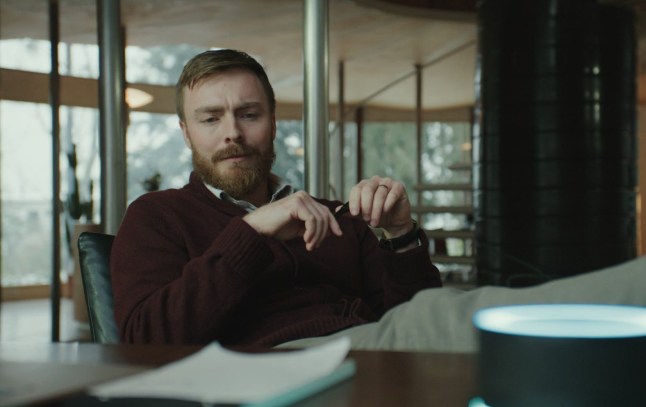
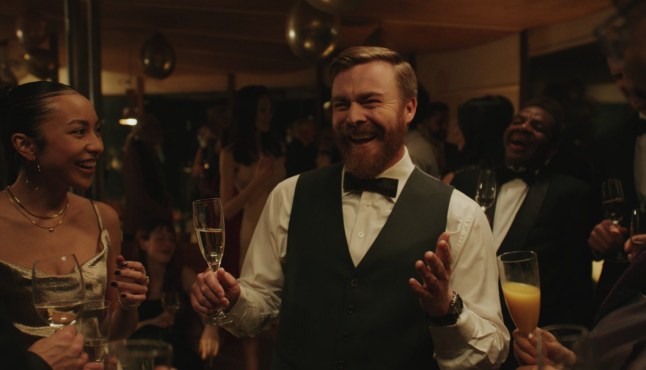
Concerns for AI replacing screenwriters have become mainstream conversation, more so since the 2023 Writers Guild of America strike. But for Luisi, these fears can be addressed through AI experiments like The Last Screenwriter.
‘Everybody said that AI is going to replace writers. Okay, so we did it, we replaced the writer. Now, let’s look at the result and talk about it. Through this movie, I can show that we need to make some rules and protect writers from AI.’
Regardless of the premiere getting called off, Luisi’s goal was always to make The Last Screenwriter available online for free. A theatrical screening is still on the cards but only for his cast and crew. While the movie was intended to be released on its official website on July 11, Luisi is now on the fence regarding a final date.
As for the funding, he is thankful for his last film Bonjour Switzerland (one that he wrote and directed himself sans AI) to be the eighth-biggest domestic hit in the country. The box-office success prompted the Swiss government to grant him £750,000 that could be used in his next project.
He cheekily admits that while this money wouldn’t have been enough for him to buy a house, it was enough for him to take on an unconventional project like his 2024 drama.
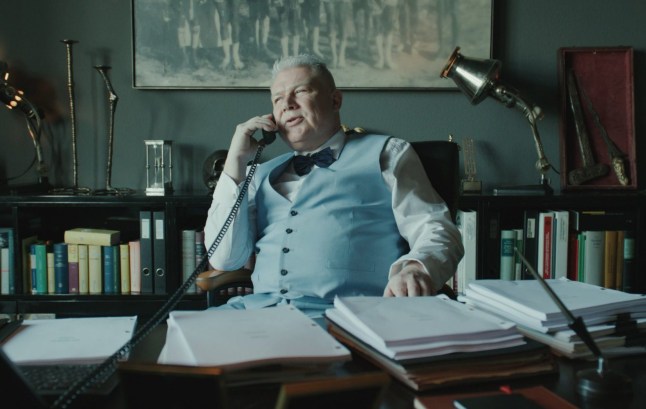
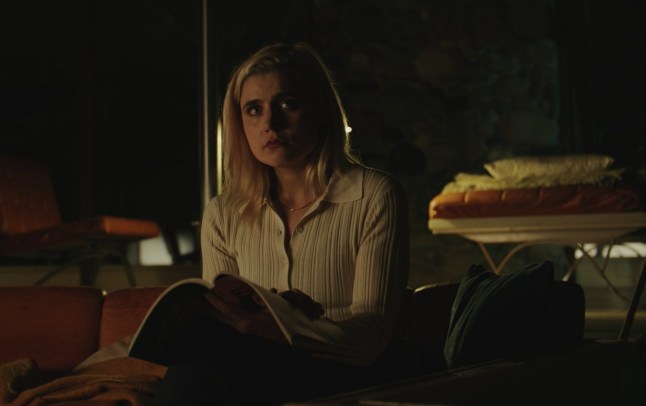
When asked about the production process, he adds: ‘In the end, it’s a movie written by AI about a movie being written by AI. But we had a great cameraman, a great cast, and me directing. So, everything else about it was human.’
Luisi’s experiment drew harsh reactions, as is evident from the comments under the Prince Charles Cinema premiere announcement. After drawing the curtains on the premiere, many are praising the move, with some even commenting that such decisions make it their favourite cinema in London.
But if one was to read comments under the cinema’s public statement, a few are also finding its boycott to be uncalled for.
As a user on X called @HelmutBuergmann commented: ‘…an unfortunate knee-jerk reaction by the commentators. A non-profit indie film that both thematically treats, and in the process incorporates the very thing you worry about, and your reaction is to cancel it?’
Another X user called @James_E_Morton added: ‘Sounds like it would have been quite thought-provoking and opened up dialogue many of AI’s critics want to have.’
As for Luisi himself, the director laments that his project has been largely misinterpreted. With regards to the cancellation, he says: ‘I wouldn’t have made [the] decision they did, but I respect that. And I hope the conversation goes on elsewhere because it would have been really nice to have a great discussion afterwards.’
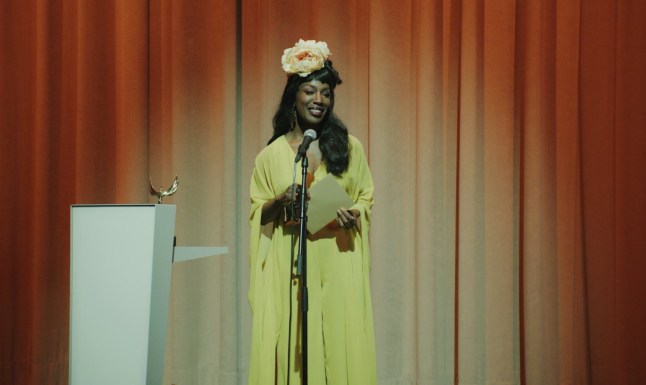
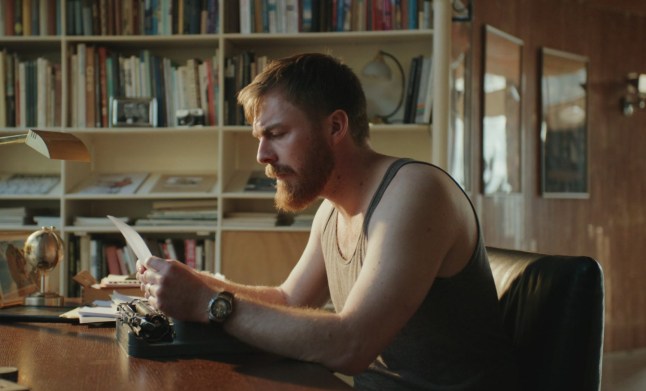
He continues: ‘I think most people who responded on social media, they don’t know enough about the project. They just hear AI and go like “Oh my god, it’s happening. The evil is coming.” After watching it, some people would still be against it and that’s fine. But most people, I believe, would be open if they understood the context in which the film is made and what it’s supposed to be doing.’
The Last Screenwriter is only one of the controversial projects to rely on AI in the wake of last year’s writer’s strike.
More Trending
Ahead of its 2024 wide release, the supernatural horror Late Night with The Devil drew flak for featuring three AI-generated still images. Similarly, Alex Garland’s A24 hit Civil War was criticised for relying on AI-created promotional posters on Instagram.
AI in the film industry also became a talking point in festivals like Cannes where concerns were raised by the subtitling and dubbing industry, and the Annecy Animation Festival, where the AI-generated music video Etoile Filante was received with boos and taunts.
Looking back at such controversies, Luisi admits that AI can have a destructive impact on graphic designers, subtitle writers, and advertising agencies. But he isn’t content with just fearing the technology.
Book your ticket to see Wicked now!
‘I totally understand how AI is a threat and I share that fear but we have to live with it and we can’t ignore it.’
Got a story?
If you’ve got a celebrity story, video or pictures get in touch with the Metro.co.uk entertainment team by emailing us celebtips@metro.co.uk, calling 020 3615 2145 or by visiting our Submit Stuff page – we’d love to hear from you.
MORE: Traffic lights could be getting a new colour
MORE: AI chatbots behind soaring number of travel scams, expert warns
MORE: Hear a Holocaust survivor’s emotional memories captured in virtual reality















